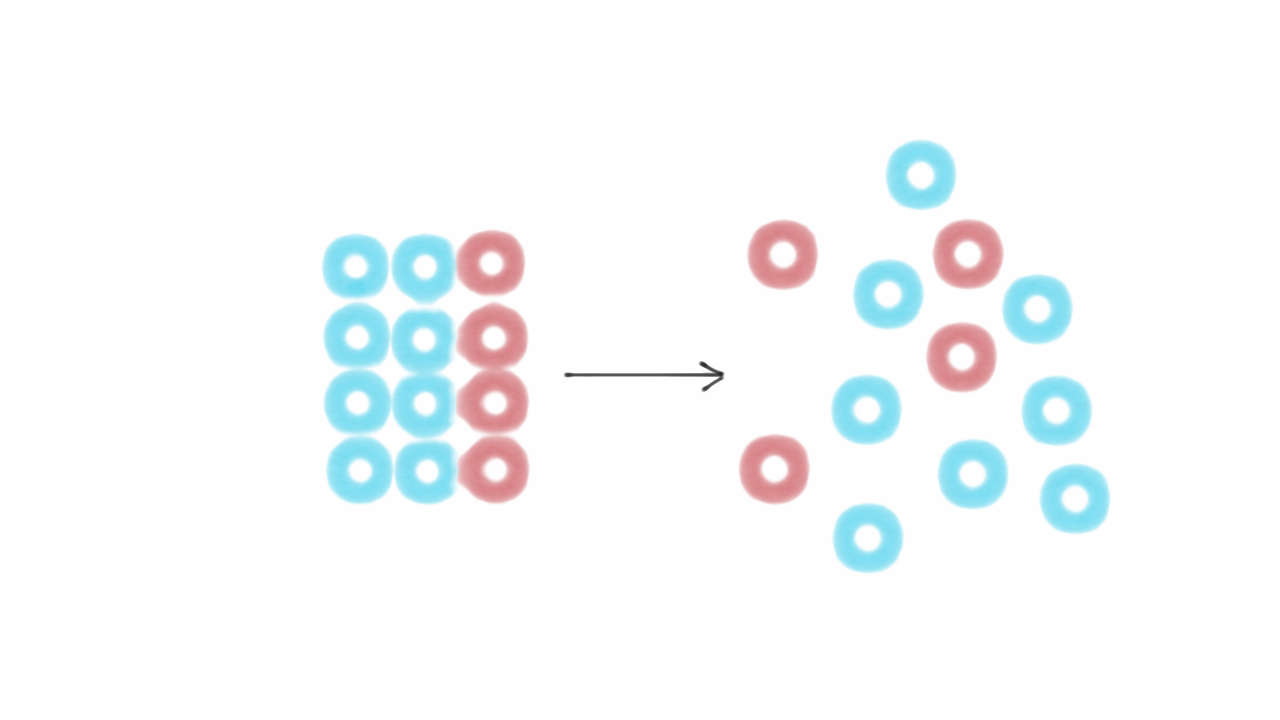

Because it can’t have unlimited memory of every molecular motion, it must occasionally wipe its memory clean-forget what it has seen and start again-before it can continue harvesting energy. The German-American physicist Rolf Landauer showed that even if the demon can gather information and move the (frictionless) door at no energy cost, a penalty must eventually be paid. And the reason shows that there is a deep connection between thermodynamics and the processing of information-or in other words, computation. It took a hundred years to understand why Maxwell’s demon can’t in fact defeat the second law and avert the inexorable slide toward deathly, universal equilibrium.

By exploiting its knowledge with intent, it can defy the laws of thermodynamics.Īt least, so it seemed. And second, it has intention: a plan to separate the hot from the cold. First, the demon has more information than we do: It can see all of the molecules individually, rather than just statistical averages. Eventually, he has a compartment of cold gas on the right and hot gas on the left: a heat reservoir that can be tapped to do work. And every time a slow, “cold” molecule approaches from the left, he lets that through, too. Every time he sees a particularly energetic molecule approaching the door from the right-hand compartment, he opens it to let it through. The demon separates the box into two compartments, with a sliding door in the wall between them. Imagine some little creature-the physicist William Thomson later called it, rather to Maxwell’s dismay, a demon-that can see each individual molecule in the box. Eventually all the universe will be reduced to a uniform, boring jumble: a state of equilibrium, wherein entropy is maximized and nothing meaningful will ever happen again. That is the second law of thermodynamics.

This randomness is equated with the thermodynamic quantity called entropy-a measurement of disorder-which is always increasing. In every physical process, some energy is inevitably dissipated as useless heat, lost among the random motions of molecules. Pockets of energy are declining, concentrations of heat are being smoothed away. In other words, thermodynamics-the new science of heat flow, which united large-scale properties of matter like pressure and temperature-was the outcome of statistical mechanics on the microscopic scale of molecules and atoms.Īccording to thermodynamics, the capacity to extract useful work from the energy resources of the universe is always diminishing. Maxwell had already shown how the predictable and reliable mathematical relationships between the properties of a gas-pressure, volume and temperature-could be derived from the random and unknowable motions of countless molecules jiggling frantically with thermal energy. Maxwell showed how introducing these two ingredients seemed to make it possible to do things that thermodynamics proclaimed impossible. The first attempt to bring information and intention into the laws of thermodynamics came in the middle of the 19th century, when statistical mechanics was being invented by the Scottish scientist James Clerk Maxwell. But one message that emerged very clearly was that, if there’s a kind of physics behind biological teleology and agency, it has something to do with the same concept that seems to have become installed at the heart of fundamental physics itself: information.

It’s hardly surprising that there was no consensus. This past November, physicists, mathematicians and computer scientists came together with evolutionary and molecular biologists to talk-and sometimes argue-about these ideas at a workshop at the Santa Fe Institute in New Mexico, the mecca for the science of “complex systems.” They asked: Just how special (or not) is biology? Meaning and intention-thought to be the defining characteristics of living systems-may then emerge naturally through the laws of thermodynamics and statistical mechanics. In other words, there appears to be a kind of physics of things doing stuff, and evolving to do stuff. Once we regard living things as agents performing a computation-collecting and storing information about an unpredictable environment-capacities and considerations such as replication, adaptation, agency, purpose and meaning can be understood as arising not from evolutionary improvisation, but as inevitable corollaries of physical laws.


 0 kommentar(er)
0 kommentar(er)
